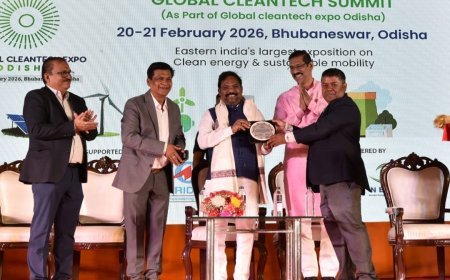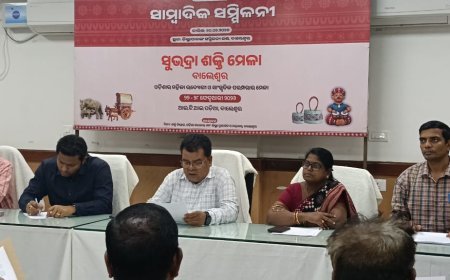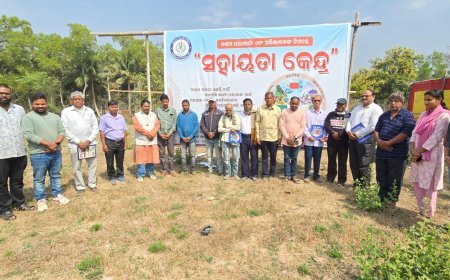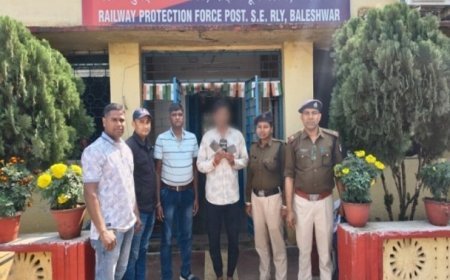XIM UNIVERSITY'S SCHOOL OF SUSTAINABILITY ORGANISES 8TH ANNUAL BUSINESS CONCLAVE PARIVARTAN

Bhubaneswar(02/09/2023): The School of Sustainability, XIM University (New Campus), Odisha in association with ConXerv, the functional committee of the School of Sustainability, successfully organised the 8th Annual Business Conclave titled Parivartan on the theme “India’s Advancement towards Sustainable Development through Carbon Markets” on Saturday.
The event commenced with a welcome note by Prof.Dr.Sutapa Pati, Dean School of Sustainability, XIM University followed by an introductory address by Prof.Dr.Tanmay Khuntia, Faculty Coordinator ConXerv, School of Sustainability, XIM University.
The welcome presentation built the foundation for the 8th Annual Business Conclave, which focused on the tunnel vision of sustainability and the role of ethics in the operation of carbon markets.
The discussions emphasised the significance of quality and technology in the generation of carbon credits.
The conclave discussed on using a mitigation hierarchy in a business' net-zero transition strategy.
The most significant impediment to the global growth of carbon markets was the double counting of credits.
Green taxes, for example, have been identified as a motivator for firms to become more sustainable.
XIM University was honoured to host Meher Sindhwa, Vice President ACX; Anubhav Dimri, Executive Director at Carbon Check; Anveshi Gutta, CEO of Quest Sustainable Solutions; Priyanka Pothana, Director & CEO at GC Advisory; Nidhi Mehra, Co-Founder of MyPlan8; and Pulak Mishra, General Manager at Enen Green. The major highlights of the speeches presented by the panellists included the carbon mechanisms in the past, present, and future, different standards used in achieving sustainable development goals, the quality of technology in the projects, the role of carbon markets in sustainable development, climate indicators, rights and wrongs of carbon markets Actions were questioned to the audience and discussed, including the latest developments in the field of sustainability—carbon markets, Cross Border Advancement Mechanism (CBAM), assurance, the interaction of consumer behaviour, social equity and carbon markets, and leveraging carbon markets for sustainable businesses.
Two case studies were also presented in context of the verified carbon standard (the core carbon, Odisha) and the gold standard (the nature conservation reforestation project, Caatinga, Biome, Ceara, Brazil).
A solution suggestion by a panellist regarding the problem of double counting carbon credits was to create and maintain a common ledger.
The need for domestic carbon markets in India today, how carbon markets should be pricing emissions to cut greenhouse resources, and information about the key players, initiatives, challenges, and roadblocks were discussed.
The relationship between convenience and consumerism was discussed, as was information about sustainable business startups and how many actually leverage or register their carbon credits. The end note was quoted as ‘If you’re not a part of the solution, you’re definitely a part of the problem’ by one of the panelists.
The programme concluded with a panel discussion that acknowledged the critical need for a compliant carbon market in order to have a real social and environmental impact .










































